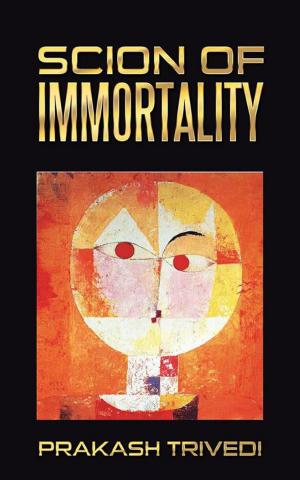Bartered Lives
Love and Betrayal in North India
Nonfiction, Family & Relationships, Relationships, Marriage, Fiction & Literature, Action Suspense| Author: | Joyshri Lobo | ISBN: | 9781482834642 |
| Publisher: | Partridge Publishing India | Publication: | July 8, 2014 |
| Imprint: | Partridge Publishing India | Language: | English |
| Author: | Joyshri Lobo |
| ISBN: | 9781482834642 |
| Publisher: | Partridge Publishing India |
| Publication: | July 8, 2014 |
| Imprint: | Partridge Publishing India |
| Language: | English |
"Bartered Lives" is the tale of two married couples from different economic, religious, and social strata. Their relationships, based on mutual trust and love, break the barriers laid down by caste and community. Though their paths keep crossing, all have to face huge challenges and moments of extreme conflict due to the independent choices they make. The story juxtaposes once-tolerant Hindus against Muslims and other minorities, encouraged by ruthless politicians. The vacuum created by indifferent governance is filled by the slum lord, "Commando," who creates his own rules of reward and punishment. He is a self-made man, charismatic, often crude and vulgar, generous, helpful, brutal, and very wealthy. He pays no taxes but governs the Basti with an iron fist. In particular, it is the story of Shaku, a teacher from a rich Brahmin home, that employs as servants Durgi and her daughter Gulabo, both from the lower castes. Their large family has to seek ethically variant ways of earning to keep their stomachs full. Their actions clash with the very conservative rules set by the higher classes. Shaku understands this and tries to share her privileges with Durgi's family. Her journey into Afghanistan to educate her cousin-in-law Aziza is catastrophic. One of India's dream projects to help the very poor, the Aanganwadi, is described in realistic detail as an example of the state's failure and apathy. The narrative explores differences between education provided for well-to-do children in private schools as compared to those from the slums. This is a portrait of twenty-first-century India, whose youth are educated but have no jobs, whose government creates food programmes but is defeated by its own corruption and selfishness. It is the tale of many who seek a place in the sun but cannot due to paucity of funds, space, and jobs. And yet, through it all, India smiles and is hospitable to a fault!
"Bartered Lives" is the tale of two married couples from different economic, religious, and social strata. Their relationships, based on mutual trust and love, break the barriers laid down by caste and community. Though their paths keep crossing, all have to face huge challenges and moments of extreme conflict due to the independent choices they make. The story juxtaposes once-tolerant Hindus against Muslims and other minorities, encouraged by ruthless politicians. The vacuum created by indifferent governance is filled by the slum lord, "Commando," who creates his own rules of reward and punishment. He is a self-made man, charismatic, often crude and vulgar, generous, helpful, brutal, and very wealthy. He pays no taxes but governs the Basti with an iron fist. In particular, it is the story of Shaku, a teacher from a rich Brahmin home, that employs as servants Durgi and her daughter Gulabo, both from the lower castes. Their large family has to seek ethically variant ways of earning to keep their stomachs full. Their actions clash with the very conservative rules set by the higher classes. Shaku understands this and tries to share her privileges with Durgi's family. Her journey into Afghanistan to educate her cousin-in-law Aziza is catastrophic. One of India's dream projects to help the very poor, the Aanganwadi, is described in realistic detail as an example of the state's failure and apathy. The narrative explores differences between education provided for well-to-do children in private schools as compared to those from the slums. This is a portrait of twenty-first-century India, whose youth are educated but have no jobs, whose government creates food programmes but is defeated by its own corruption and selfishness. It is the tale of many who seek a place in the sun but cannot due to paucity of funds, space, and jobs. And yet, through it all, India smiles and is hospitable to a fault!















